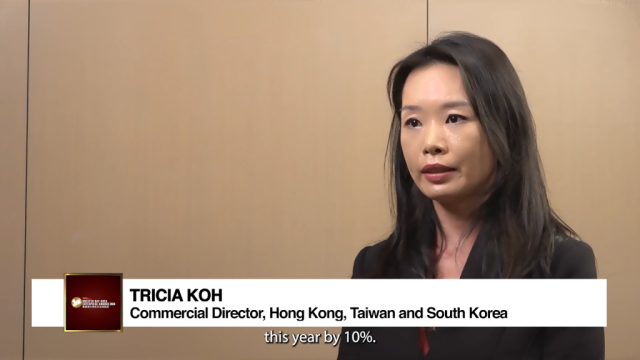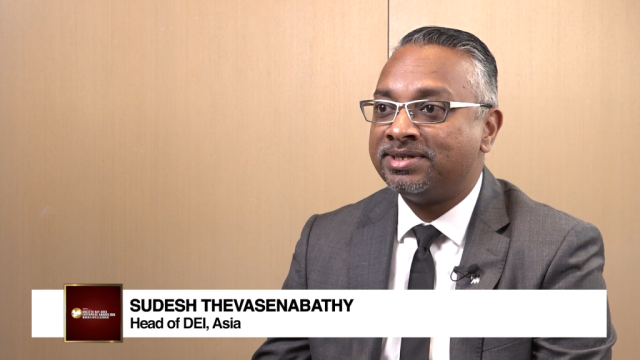Selling effectively: harnessing the power of big data
By Lawrence ChiaEffective sales is a very simple concept to describe: a company finds customers and then sells its products and services to them. But to put this concept into practice is much more difficult – it was not easy in the past and it is certainly not any easier today.
That said, certain companies are selling their products incredibly effectively today – let's take a closer look at the situation. Over the past couple of decades, the marketing landscape in Hong Kong has been completely transformed; a current marketing campaign would be practically unrecognisable to marketers from the early 2000s – even though the end goal is precisely the same. The two basic types of marketing have also remained the same – we have pull (or inbound) marketing and push (or outbound) marketing.
So if the goal and the basic structure of sales campaigns have remained the same, what makes a modern marketing campaign so different? And what makes it effective?
Technology has changed everything
First, the differences. The most significant transformative agent has been technology, specifically the smartphone. In Hong Kong, the smartphone penetration rate is one of the highest in Asia. Go-Globe has more interesting facts for us: 96 percent of Hong Kong smartphone users browse websites on the move – the highest rate in Asia.
Eighty-nine percent of Hong Kong smartphone owners use their phones to research products and services, while 43 percent make purchases on their phones. Mobile communications are now an indispensable part of all pull marketing campaigns.
Technology has also made its mark on push marketing, with a massive increase in online and social media ad spend leading to a dramatic shift away from more traditional print media and outdoor ads. However, tech has also made the overall media environment much busier and more complex, and reaching target audiences is as hard as it has ever been.
So with technology making things so different, the question is: how can we sell effectively in this new environment? Effective selling means providing the right products and services to the right targets at the right time. Practically speaking, this means being relevant, getting the timing right, and, as far as is possible, personalising your message. Let's break these three sections down.
Being relevant
Relevancy means giving your customers what they want, when – or even before – they want it. Affiliate programmes and referral programmes are both highly effective ways of reaching out to people. Affiliate programmes sell 'butter with bread' or 'noodles with broth', for example, giving people another product they need in addition to the original product.
Referral programmes only work with happy customers, as they require these customers to recommend their products to their friends and families. Both these approaches require brand loyalty, and for some companies technology has been instrumental in cultivating deep and lasting loyalty.
Highly successful marketing campaigns have kept their devotees coming back time and again for the newest models – staying relevant by keeping their customers on the cutting edge of technology.
Getting the timing right
In today's fast-moving world, timing is crucial. The reason being that despite the fast pace of life, most consumers are creatures of habit. Whatever product or service your company offers, you should seek to understand your customers' usage cycles and their habits. For example, in Hong Kong, many mobile phone contracts run for 24 months and often include a free, or heavily discounted, smartphone in the package.
This means that every two years customers will potentially be looking for a new phone. Unfortunately, due to severe competition, telecom players are sending thousands of tele-sales representatives to bombard users almost every day. Only armed with the right information and the right execution, companies can target and time their sales accordingly.
The personal touch
Finally, the most important way in which sales campaigns can be made effective today is through technology-enabled personalisation. Every customer craves the personal touch, and those who receive it are much more likely to be converted into purchasers and brand loyalists. By harnessing the power of big data, Amazon uses item-to-item collaborative filtering to determine what customers have purchased before, what they have in their virtual shopping cart or on their ‘wish list’, the items they have rated and reviewed, as well as what similar customers have purchased before.
All these metrics allow the company to heavily customise a returning customer's shopping experience. Amazon successfully captures the 'data exhaust' that everyone visiting the website leaves behind to build an innovative recommendation and marketing data system. This 'virtual customer service' gives Amazon shoppers a shopping experience that borders on the personalised.
Another example of personalisation is Netflix, the global online movie platform which debuted earlier this year in Hong Kong. Netflix uses data analytics to measure all aspects of customer interaction, including the user interface which they are constantly improving.
With 75 million users worldwide, the company has invested a great deal in data analytics. Large teams watch movies and tag them with detailed meta-data tags; as a result they have created over 76,000 micro-genres – allowing the company to scrutinise what their customers are watching in incredible detail.
Netflix's analysis of big data told them so clearly what audiences wanted that they have started producing their own shows based on the data they collected. The runaway success of shows like House of Cards proves that they are getting this right.
Big data analytics, coupled with the Internet of Things – which will provide enormous amounts of data to companies – is the future of marketing. Understanding the behavioural patterns of your customer base by collecting large chunks of information will soon become a necessity.
However, tapping into the power of big data is something that is well within the reach and budget of most companies today, and with this information at hand, you will be able to sell to your customers more effectively than ever before.























 Advertise
Advertise








